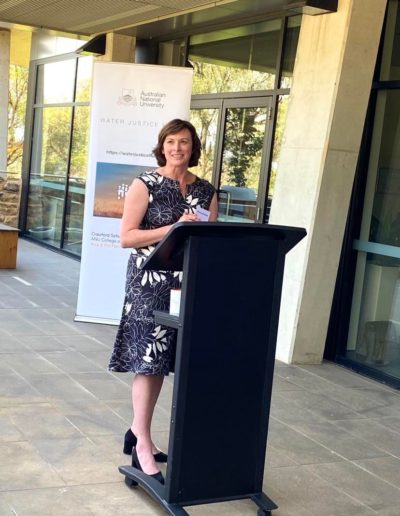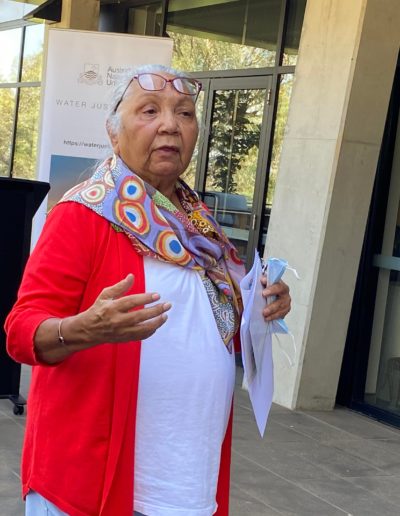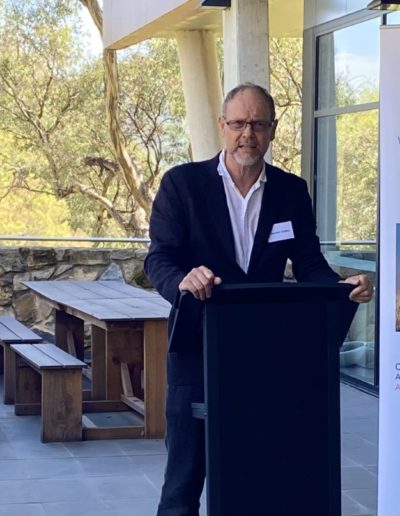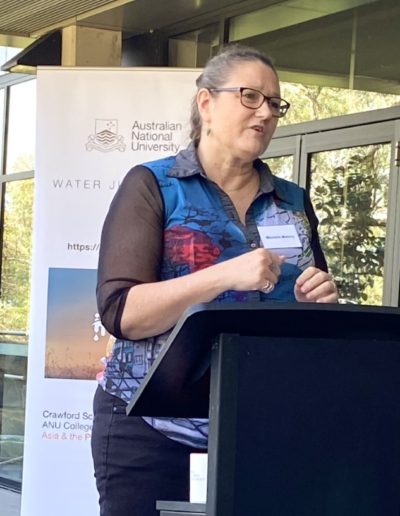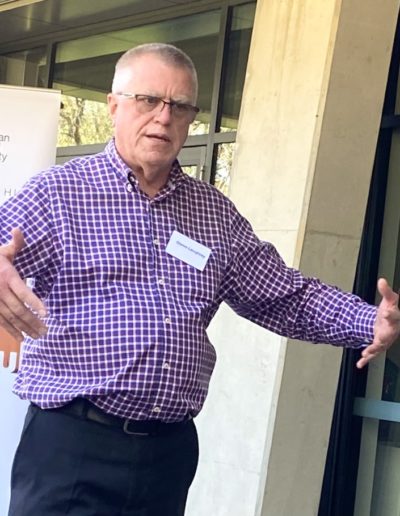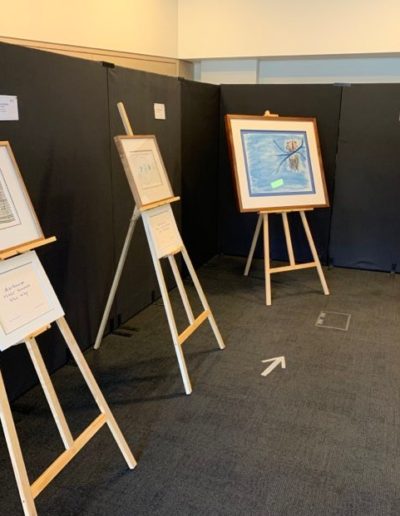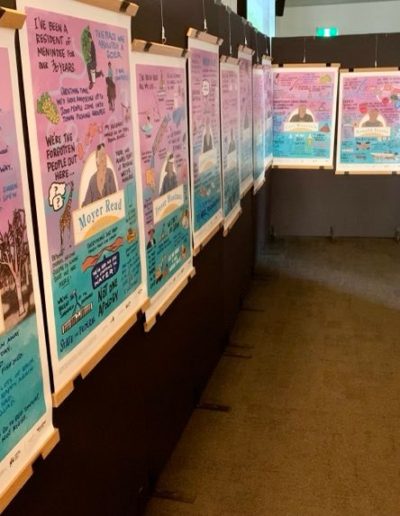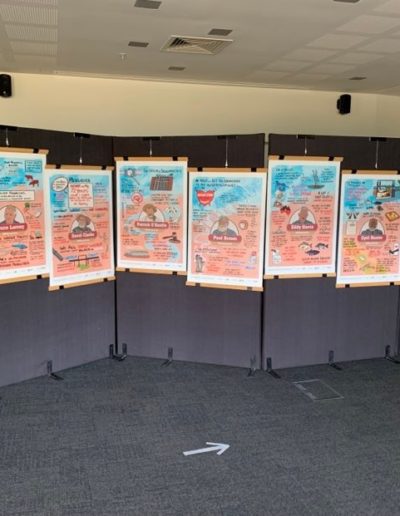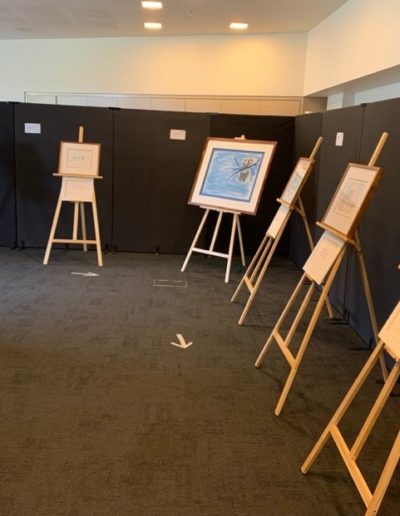The experiences of Country and the people of the Barka-Lower Darling River are the focus of a unique art, voice and justice exhibition launched on World Water Day in Canberra at The Australian National University (ANU), supported by the Water Justice Hub within the Crawford School of Public Policy.
The exhibition, Aquawhen II? includes pictorials commissioned by the Water Justice Hub and work by artists Rix Lee and Tom Horne. They are based on the lived experiences of 33 residents of Western New South Wales who appeared before the 2019 Citizens’ Inquiry on the Health of the Barka-Darling River.
Formally launching the exhibition was Dr Aunty Matilda House, Dr Michelle Maloney from the Australian Earth Laws Alliance, artist Glenn Loughrey, Crawford School’s Interim Director, Professor Renee Fry-McKibbin, and Water Justice Hub Convenor Professor Quentin Grafton.
Professor Fry-McKibbin acknowledged the importance of water justice in today’s context.
“The impact of climate change and inadequate management of resources have been felt by many across Australia – in regional and remote Australia particularly,” she said.
“This exhibition is all the more important, therefore, to showcase the voices and lived experiences of those who contributed to the 2019 Citizens’ Inquiry on the Health of the Barka-Darling River and Menindee Lakes.”
The exhibition also includes nine paintings of Glenn Loughrey; eight haiku calligraphy pieces (words by Maurice Nevile with calligraphy by Jill Robertson); a short film made in 2019-20 of the Barka-Lower Darling River (created by Otis Filley & Dan Schulz) including the sounds of the Barka-Darling and the relationships between water and life; and ‘Justice Posters’ based on selected research of some members of the Water Justice Hub.
Professor Quentin Grafton, said the exhibition is about telling ‘water stories’ and giving an opportunity for ‘Voices of the River’, including Barkandji (People of the Barka), who appeared before the 2019 Citizens’ Inquiry to be heard.
“The pictorials are a powerful statement of the witnesses’ love of Country and what happened to their beloved river in 2019. The posters, pictures, calligraphy, and the short film tell a moving story of when a river runs dry,” said Professor Grafton.
“This exhibition is a unique opportunity to connect to people, to place and across time. It’s an ‘everywherewhen’ experience that invites everyone from everywhere to connect to water in a very special place. We call this experience Aquawhen II?”
This free exhibition is open to the public and runs until 25 March 2022, at the Crawford School of Public Policy.
Register here to attend.
Slideshow photos:
Dr Aunty Matilda House is a Ngambri/Wiradjuri Elder who has dedicated her life to the pursuit of social justice for Indigenous people.
Part of the AquaWhen II exhibition;
Dr Michelle Maloney, co-founder and national convener of the Australian Earth Alliance;
Professor Quentin Grafton, Convener of the Water Justice Hub;
Professor Renee Fry-McKibbin, Interim Director at Crawford School of Public Policy.
